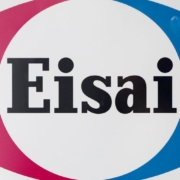Eisai and Biogen completed the rolling submission of a Biologics License Application for their proposed Alzheimer’s disease drug to the U.S. Food and Drug Administration.
Eisai Co. Ltd. and Eli Lilly and Co. on April 8 said they still plan to seek accelerated U.S. approval for experimental Alzheimer’s drugs even after the Medicare health plan decided to severely limit coverage of medicines approved in that manner.
Japan’s Eisai Co. Ltd. will surrender the company’s rights to share profit from Aduhelm – the Alzheimer’s treatment drug jointly developed with U.S. partner Biogen Inc. – and instead receive sales royalties, the companies said on March 14.
According to the U.S. Food and Drug Administration’s Adverse Events Reporting System (FAERS), three more deaths have been reported potentially associated with the Alzheimer’s drug Aduhelm since Biogen indicated during November 2021 that the company was investigating the death of a 75-year-old woman who died from a brain abnormality.
Roivant Sciences launched the new subsidiary Hemavant, which hit the ground running with a licensing agreement from Eisai for RVT-2001, a potential first-in-class small molecule SF3B1 modulator.
While the Centers for Medicare & Medicaid Services undergoes the comment period on its national coverage decision for Biogen’s controversial Alzheimer’s drug Aduhelm (aducanumab), Biogen and its partner company Eisai released additional details about the Phase IV post-marketing study of the drug.
Eisai and Biogen announced positive updates on the Phase IIB 201 and open-label extension (OLE) studies they are conducting on the use of lecanemab to treat early Alzheimer’s Disease (AD).
Eisai Co. on Sept. 27 began the application process for the Japanese drugmaker’s experimental drug lecanemab for early Alzheimer’s disease using an accelerated approval pathway, the same path that helped Eisai’s development partner Biogen Inc. win U.S. approval of its medication in June.







